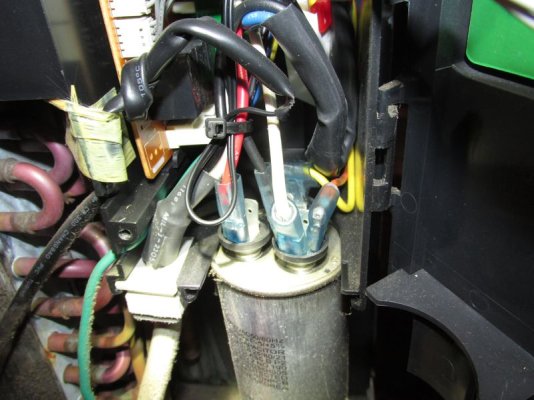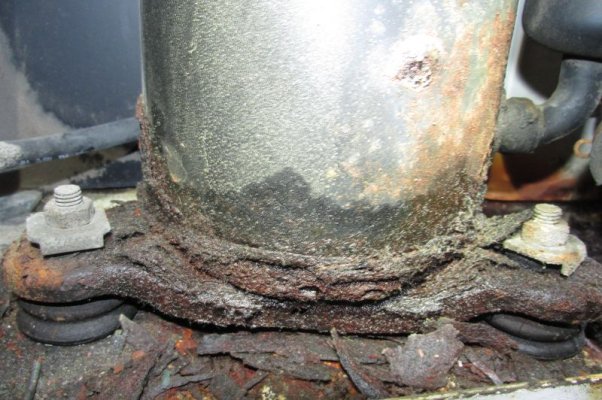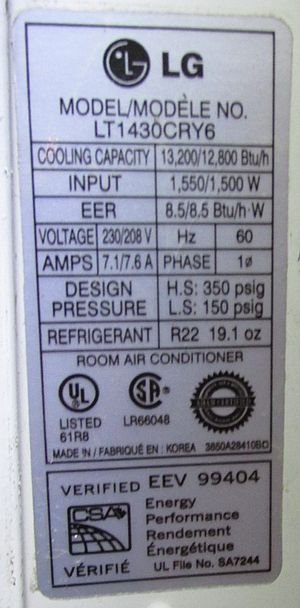aja8888
Moderator Emeritus
HAHA!! I got the aircon working again in the Sprinter. The condenser sprung a leak and let all the refrigerant out. I bought a cheap vacuum pump (already had AC manifold and gauges), got a new condenser and did the swap. The only stumbling block I ran into was some galvanic corrosion that seized the low-side hose fitting to the condenser. In retrospect I should have simply bought a new hose, but instead I cranked out the condenser nipple with an impact wrench and spent an hour picking out the residual aluminum that remained stuck in the hose fitting.
It didn't chill quite as much as I would have liked at first, but I did a test of the engine cooling fan clutch and determined it was pretty weak. A new fan clutch got the cooler going as it should.
I'm really stoked that I did a successful AC job.
Nice work! I assume you ran a vac pump on it to get the air/moisture out before charging. Sometime the receiver/drier needs to be changed if the system is open for a while.
I just replaced my Mustang's compressor and drier. Now it's nice and cold here in very humid Houston.





